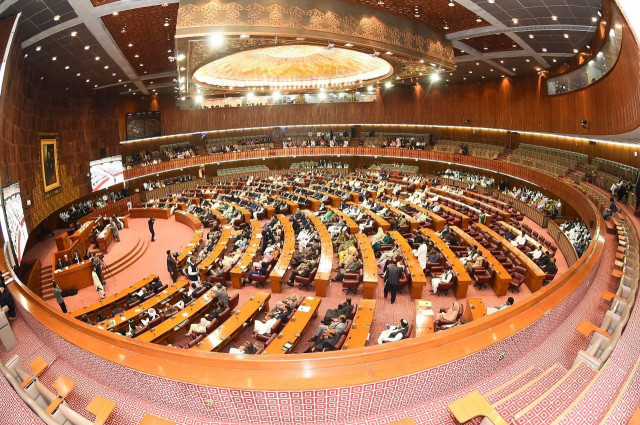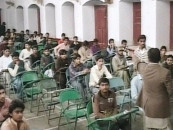Parties gear up for reserved seats allocation
ECP has also outlined the procedure for distributing special seats

With most of the results for the February 8 general elections finally announced, the process of government formation and allocation of specific seats in the provincial assemblies has commenced.
The Election Commission of Pakistan (ECP) has also outlined the procedure for distributing reserved seats among successful political parties, as well as for government formation.
Successful political parties in the provincial assemblies will obtain reserved seats for women and minorities according to the outlined procedure.
The total number of seats in the Punjab Assembly is 371, consisting of 297 general seats, 66 seats reserved for women, and 8 seats reserved for minorities. To form a government in Punjab, 186 seats are required.
In the Punjab Assembly, a party will be allocated one seat for women at a rate of 4.5%, equating to one reserved seat for every 9 general seats. One seat will be allotted to a minority member of a party at a rate of 37.12%.
According to the current party positions in Punjab, out of the 66 seats reserved for women, 30 seats are allocated to the PML-N, two each to the PPP and the PML-Q, while the remaining 32 seats will be allocated to the party that independent candidates join.
The total number of seats in the Sindh Assembly is 168, with 130 general seats. A political party that secures 85 seats will be in a position to form its government.
In the Sindh Assembly, out of the 130 general seats, 29 seats will be reserved for women and 9 seats for minorities. According to the prescribed ratio for the allocation of reserved seats, one seat will be allocated for women at a rate of 4.48%, and one minority seat at a rate of 14.44%.
Read Reserved seat allocations for friends and family only
Based on this specified proportion for the distribution of reserved seats, the PPP is positioned to obtain 19 out of the 29 seats reserved for women in the Sindh Assembly, while six seats are earmarked for the MQM and three seats are contingent upon independent candidates.
In the Khyber-Pakhtunkhwa (K-P) Assembly, out of the total 145 seats, 115 are general seats, and a political party securing 73 seats can form its government.
In the K-P Assembly, one reserved seat will be allocated for women based on a ratio of 4.42%, and one minority seat will be allocated for every 29 general seats.
In the K-P Assembly, out of the 26 reserved seats, 21 seats are contingent upon the inclusion of independent candidates in political parties. The JUI-F receives two seats, while the PML-N and the PPP each receive one seat. The Jamaat-e-Islami and the PTI-Parliamentarians jointly hold one seat.
The total number of seats in the Balochistan Assembly is 65, and any political party can easily form the government by securing 33 seats. Based on the 51 general seats in the Balochistan Assembly, 11 seats will be allocated for women and three seats for minority members.
In the Balochistan Assembly, any political party will be allocated one seat for women at a rate of 4.63%, and one minority seat for every 17 general seats.
According to the current party positions, the JUI-F will receive three seats, the PPP and PML-N will receive two seats each for women, and the remaining three seats will be distributed among other parties and one seat for an independent candidate joining any political party.



















COMMENTS
Comments are moderated and generally will be posted if they are on-topic and not abusive.
For more information, please see our Comments FAQ